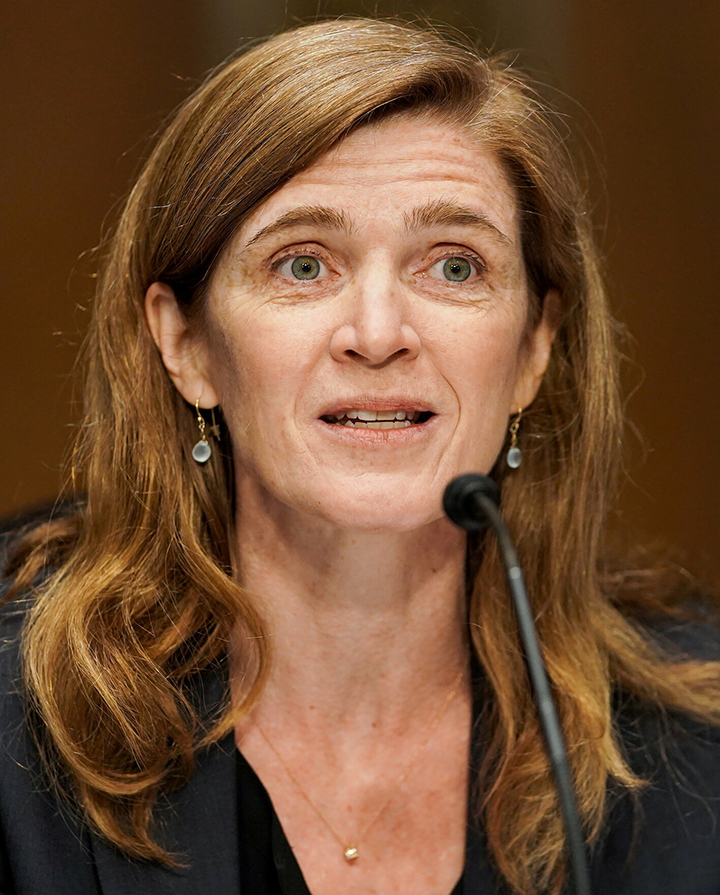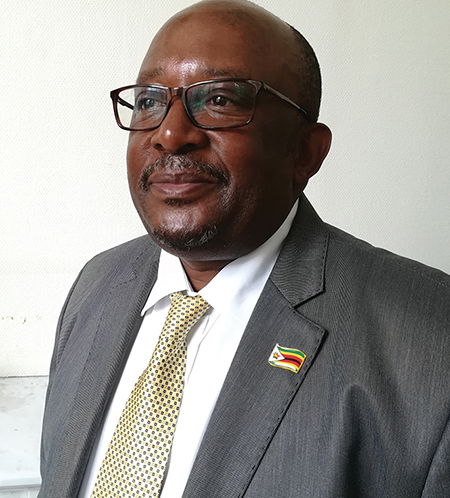- Featured
- No Comment
WAR OF WORDS: Zim ambassador to the US – ‘They can’t just walk into Zimbabwe as if it’s part of America’

By devex.com
ZIMBABWE’S ambassador to Washington has accused the U.S. Agency for International Development (USAID) of interfering in the country’s democratic processes — calling the agency’s human rights and governance work a “gross violation” of Zimbabwe’s sovereignty.
His remarks came just hours after the United States sounded the alarm on Zimbabwe for allegedly intimidating, harassing, and deporting USAID staff and contractors, whom the U.S. Department of State said were “abruptly detained and deported,” last month.
“[USAID staff] were asking people questions like, why did the opposition lose after we’ve given you so much support?” Ambassador Tadeous Tafirenyika Chifamba told Devex on Friday, referring to Zimbabwe’s national election last August. “This clearly is an attempt at regime change.”
USAID Administrator Samantha Power released a statement on Friday claiming Zimbabwean authorities verbally and physically intimidated U.S. officials conducting a human rights, governance, and democracy assessment in the southern African nation. They were subjected to overnight detention, prolonged interrogation, and forced deportation, Power said, a “grave development” after two years of similar incidents.
A USAID spokesperson said the agency notified the government of Zimbabwe about their assessment plans “well in advance” of the team’s arrival, and requested a meeting to provide a pre-brief to the authorities. The team was at work for 10 days before the incident occurred.

“These unjustifiable actions render hollow the Government of Zimbabwe’s claims that it is committed to the reforms necessary for democratic governance and reengagement with the international community,” Power said in the statement.
These events aren’t happening in a vacuum. Earlier this week, the U.S. sanctioned Zimbabwe President Emmerson Mnangagwa and other senior government officials for alleged corruption and human rights abuses. U.S. Secretary of State Antony Blinken claimed Zimbabwean government officials were involved in looting national coffers and participating in abductions, abuse, and killings that have “left citizens living in fear.”
Chifamba told Devex those allegations were “a lot of nonsense,” and pointed to allegations of corruption across the U.S. He also said U.S governance, democracy, and human rights programs — carrying a price tag of at least $1 million last year — were an attempt to influence Zimbabwe’s “democratic affairs.”
“Clearly, they want to influence our election processes, and that is unacceptable,” said the ambassador. “If USAID wants to send more people on missions like this without working directly with the government, they will face a similar fate.”

In 2023, the U.S. poured $289.2 million into Zimbabwe, with USAID taking the reins as the country’s largest donor globally. While the largest programs focused on HIV/AIDS, food security, and other health issues, improved governance was one of USAID Zimbabwe’s three pillars outlined in the agency’s latest strategy.
In recent years, the U.S. government has repeatedly highlighted corruption and human rights abuses across Zimbabwe, often placing government officials at the centre. After Zimbabwe’s last election, the State Department cited issues with transparency, credibility, and fairness, alleging the country’s electoral process did not meet international standards.
Today, Zimbabwe ranks 149 of 180 countries on Transparency International’s Corruption Perceptions Index, which assesses corruption in the public sector — with organizations such as Human Rights Watch reporting ongoing repression and human rights abuses for years.
“Governance and accountability challenges are at the heart of Zimbabwe’s decline over the last 20-plus years and a major contributor to the country’s vulnerability,” the strategy stated.
But it seems that Zimbabwe — or at least, Chifamba — is far from keen on those operations continuing, stating that assistance given to Zimbabwe should be responsive to the government’s needs. The ambassador claimed he had been trying to set up a meeting with USAID about its governance program for the past 18 months, but to date, has not been able to do so.
Those claims were refuted by USAID, which said agency officials met with the ambassador last spring.
“If they want to help us, they have to come through the government,” said Chifamba. “They can’t just walk into Zimbabwe as if it’s part of America.”
Despite the back-and-forth, in Power’s Friday statement, the administrator said USAID will continue to “support civil society, human rights defenders, and independent media,” while at the same time, not hesitating to “take additional measures” to hold those in power accountable.
“The people of Zimbabwe deserve better,” said Power.
